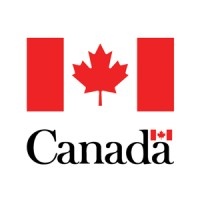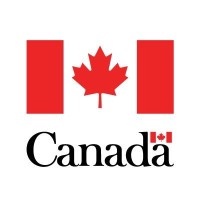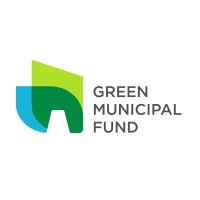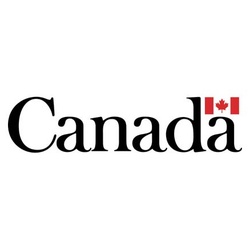
Closed
Indigenous and Stakeholder Capacity Fund - Indigenous Capacity Support
Last Update: October 27, 2025
Canada
Supports Indigenous capacity for involvement in nuclear-related activities
Grant and Funding
At a glance
Funding available
Financing goals
Develop employee skills
Conduct research
Strengthening governance
Eligible Funding
- Maximum amount : 200,000 $
Timeline
- Closing date : June 27, 2025
Eligible candidates
Eligible Industries
- Utilities
Location
- Canada
Legal structures
- Non-profit
- Public or Parapublic institution
Annual revenue
- All revenue ranges
Organisation size
- All organization sizes
Audience
- Indigenous Peoples
Non-profit candidates
Sector of operation
- Research
- Environment
- Economic, Social and Community Development
- Diversity and Inclusion
Target groups
- Indigenous peoples
- Rural / Remote communities
Revenue structures
- All structures
Scope
- Regional
- National
Overview
The Indigenous Capacity Support stream under the Indigenous and Stakeholder Capacity Fund provides annual funding (amount not specified) to help Indigenous Nations and communities enhance their capacity to engage with nuclear facilities, projects, and technologies in Canada. Eligible activities include Indigenous Knowledge and land use studies, traditional food and culture research, staffing for project coordination, and related administrative expenses.
Activities funded
- Conducting Indigenous Knowledge and land use studies not linked to specific nuclear projects or regulatory processes.
- Carrying out traditional food and culture studies relevant to Indigenous Nations and communities.
- Undertaking other studies that are of interest to Indigenous Nations and communities related to nuclear activities.
- Hiring internal staff for coordination and liaison with Canadian Nuclear Safety Commission staff regarding nuclear projects or activities in their territory or region.
Examples of admissible projects:
$ 133,500
Hiring liaison staff for engagement with nuclear safety regulators
$ 193,000
Indigenous Knowledge study on nuclear legacy impacts and land use
$ 48,000
Ceremonial and knowledge transfer event focused on nuclear sites
$ 82,000
Traditional food study near existing nuclear research facilities
$ 97,000
Land-based youth program on monitoring affected nuclear territories
$ 158,000
Comprehensive land use mapping with community engagement workshops
Eligibility
- The applicant must be an Indigenous Nation, Indigenous community, or an organization/aggregate of communities in Canada.
- The applicant must have a direct interest in regions where nuclear projects or activities are currently taking place or may take place in the future.
Who is eligible?
- Indigenous Nations
- Indigenous communities
- Indigenous organizations
- Aggregates of Indigenous communities
Eligible expenses
- Professional fees
- Administrative costs
- Travel expenses, including meals, accommodation, and incidentals
- Honoraria and ceremonial offerings
Eligible geographic areas
- Regions in Canada where nuclear projects and activities currently take place, or where they may take place in the future.
How to apply
1
Verify eligibility requirements
- Review eligibility criteria for Indigenous Nations, communities, or organizations located in regions with nuclear activities
- Confirm your community or organization's eligibility for the Indigenous Capacity Support stream
2
Define project and budget needs
- Identify eligible activities to be funded, such as Indigenous Knowledge studies or staffing support
- Determine necessary expenses and align proposed activities with eligible funding categories
3
Gather supporting documents
- Prepare required documentation and details for your funding application
- Include information on activities, staffing, expenses, and budgets
4
Submit application to administrator
- Submit your completed application to the Indigenous and Stakeholder Capacity Fund Administrator
- Follow all application instructions and ensure compliance with guidelines
5
Await decision from administrator
- Await communication regarding the status of your application
- Respond promptly to any requests for additional information from the administrator
Additional information
- The application period for this funding stream typically opens in April each year.
- Current funding opportunities are specifically available through Stream 1: Indigenous Capacity Support.
- The maximum allocation per Indigenous Nation or community is $100,000 annually, and $200,000 for organizations representing multiple communities.
- Funding is distributed on an annual basis through contribution agreements.
Contacts
iscf-fscpia@cnsc-ccsn.gc.ca
Canada
Apply to this program
Frequently Asked Questions about the Indigenous and Stakeholder Capacity Fund - Indigenous Capacity Support Program
Here are answers to the most common questions about the Indigenous and Stakeholder Capacity Fund - Indigenous Capacity Support. This section explains what the program is, how much funding is available, eligibility requirements, application deadlines, and other important details to help you determine if this grant is right for your business.
What is the Indigenous and Stakeholder Capacity Fund - Indigenous Capacity Support?
How much funding can be received?
What expenses are eligible under Indigenous and Stakeholder Capacity Fund - Indigenous Capacity Support?
What is the deadline to apply?
Is the Indigenous and Stakeholder Capacity Fund - Indigenous Capacity Support a grant, loan, or tax credit?
Who are the financial supporters of the Indigenous and Stakeholder Capacity Fund - Indigenous Capacity Support?
Who is eligible for the Indigenous and Stakeholder Capacity Fund - Indigenous Capacity Support program?
Who can I contact for more information about the Indigenous and Stakeholder Capacity Fund - Indigenous Capacity Support?
Where is the Indigenous and Stakeholder Capacity Fund - Indigenous Capacity Support available?
Are Indigenous Peoples eligible for the Indigenous and Stakeholder Capacity Fund - Indigenous Capacity Support program?
Apply to this program
More programs like this

Grant and FundingOpen
NRC IRAP – Support for clean technology
National Research Council Canada (NRC)Funding for Canadian SMEs advancing innovative clean technology commercialization

Other SupportGrant and FundingClosed
Artificial Intelligence for Canadian Energy Innovation
Natural Resources Canada (NRCan)Supports AI-driven solutions accelerating Canadian energy technology innovation

Grant and FundingLoans and Capital investmentsOpen
Capital project: Community Energy Systems
Green Municipal Fund (GMF)Funding to build and deploy renewable community energy systems

Grant and FundingClosed
Indigenous and Stakeholder Capacity Fund - Regulatory Policy Dialogue
Canadian Nuclear Safety Commission (CNSC)Funds participation in nuclear regulatory policy consultations for stakeholders

Partnering and CollaborationGrant and FundingOpen
Indigenous and Stakeholder Capacity Fund - Engagement and Collaboration Support
Canadian Nuclear Safety Commission (CNSC)Supports Indigenous and stakeholder engagement in Canadian nuclear activities

Grant and FundingClosed
On-road Transportation Decarbonization — Demonstration Projects
Natural Resources Canada (NRCan)Funding for demonstration projects in transportation

Researchers And FacilitiesPartnering and CollaborationExpert AdviceClosed
iVisit
National Research Council Canada (NRC)Enables SMEs to solve innovation challenges with research expertise

Grant and FundingOpenClosing Soon
Critical Minerals Infrastructure Fund – Shovel ready Stream
Government of CanadaSupports infrastructure projects for critical minerals development in Canada

Grant and FundingClosed
On-road Transportation Decarbonization — R&D Projects
Natural Resources Canada (NRCan)Funding for research and development projects in transportation

Grant and FundingOpen
Industrial Research Assistance Program (IRAP) — Financial Assistance
National Research Council Canada (NRC)Financial support for technology innovations
Sign up to our platform to access the Indigenous and Stakeholder Capacity Fund - Indigenous Capacity Support information sheet for free
Get access to 4,000+ programs, practical guides, personalized alerts, and an AI assistant to support your grant applications.